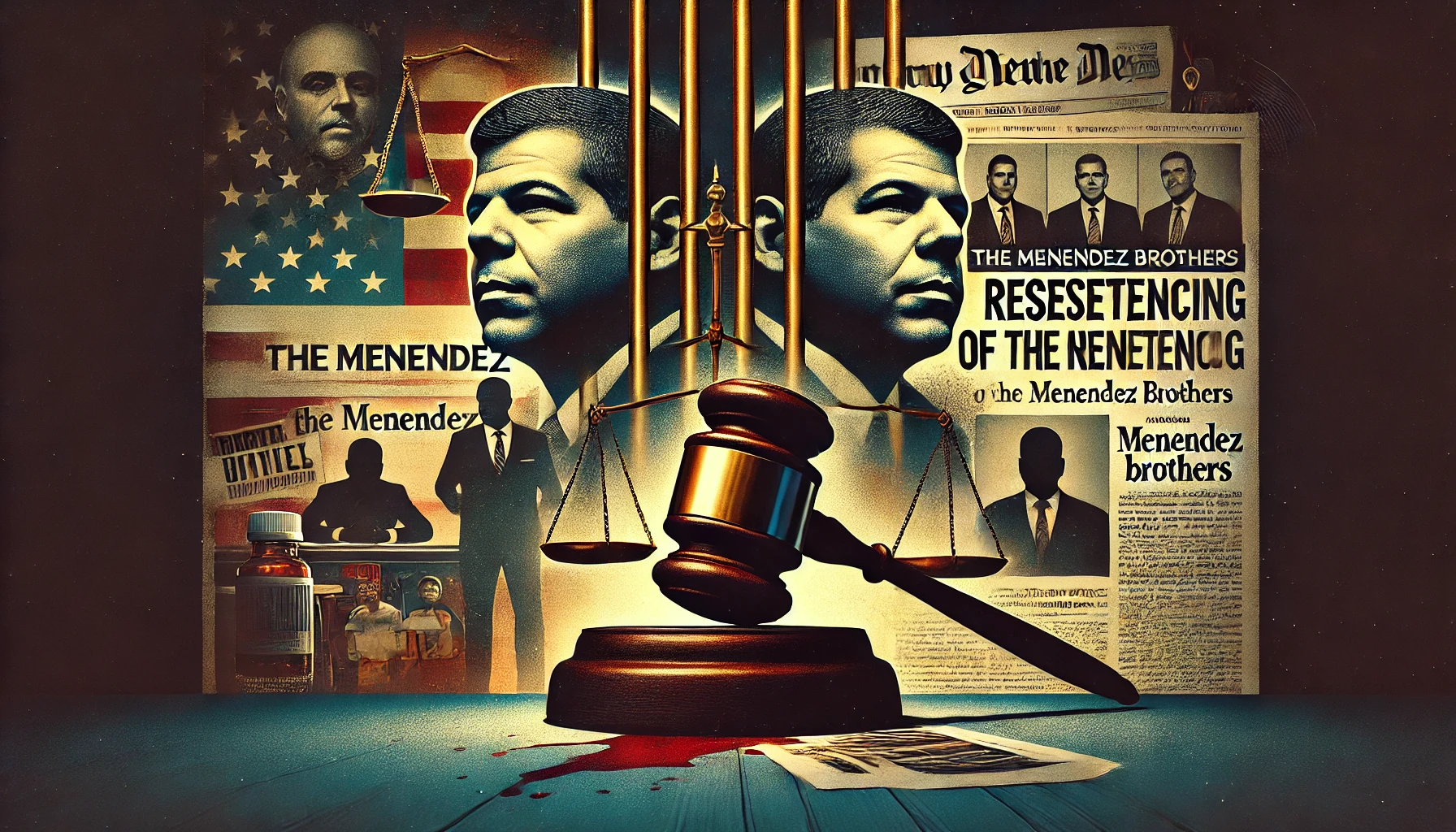The Road to Resentencing: How New Evidence Could Alter the Menendez Brothers’ Fate
The Menendez brothers, Erik and Lyle, have long captured public attention since their conviction for the 1989 murders of their parents, Jose and Kitty Menendez. The case, widely known for its shocking twists and emotional courtroom drama, is now under review for possible resentencing due to new evidence and changing legal interpretations. With significant media coverage and ongoing public interest, many are questioning how these developments could affect the brothers’ future. Could the Menendez brothers be facing a new chapter in their long-standing legal battle?
The Menendez Brothers Resentencing: A New Chance?
Recently, discussions have resurfaced about the possibility of resentencing the Menendez brothers, primarily due to new evidence that has emerged. The term “Menendez brothers resentencing” has seen increased attention, and many are curious about what this means. Could it lead to the brothers’ release, or will they face life in prison without parole as before?
The discovery of a letter written by Erik Menendez in 1988 to his cousin Andres Cano brought to light disturbing claims about ongoing sexual abuse by their father, Jose Menendez. This new evidence, along with testimony from former Menudo band member Roy Rossello, who has accused Jose Menendez of sexual abuse, has sparked a reconsideration of the brothers’ initial defense. Roy Rossello’s Menendez brothers allegations add a critical layer to the defense strategy that the brothers have always maintained: they acted in self-defense due to years of physical and sexual abuse. Now, Los Angeles District Attorney George Gascón is actively reviewing the Menendez brothers’ new evidence, which could dramatically shift the legal standing of their case.
New Evidence in the Menendez Brothers Case: What Has Changed?
The Menendez brothers’ new evidence involves two key elements: Erik Menendez’s letter and Roy Rossello’s Menendez brothers testimony. Erik’s letter, written a year before the murders, describes his father’s sexual abuse and hints at the emotional torment he endured. This letter was not available during the initial trials, and if admitted today, it could provide context for the brothers’ emotional state leading up to the killings.
Rossello’s testimony, which claims that Jose Menendez abused him while representing Menudo at RCA, reinforces the Menendez brothers’ abuse claims. This development has the potential to alter the public’s perception of Jose Menendez, from being a successful business figure to a manipulative abuser. If the court deems this new evidence credible, it may lead to a reduction of the brothers’ sentences, perhaps even to manslaughter rather than first-degree murder.
The ongoing review by the Los Angeles DA in the Menendez case is being closely followed by legal experts and the media alike, as it brings into question the fairness of the brothers’ original trial. Could this new evidence exonerate the brothers, or will it fall short of reopening the case?
The Role of Abuse Allegations and PTSD in the Menendez Brothers’ Defense
At the heart of the Menendez defense is the claim of prolonged abuse. Jose Menendez’s abuse allegations have remained central to the brothers’ narrative, where they argue that years of suffering under their father led them to a state of desperation. Throughout their trial, Erik and Lyle testified to enduring both physical and sexual abuse, ultimately leading to the murders out of fear for their lives.
But one key defense aspect was not fully explored during the trial: PTSD. Post-Traumatic Stress Disorder (PTSD) can emerge in individuals who have endured long-term physical or sexual abuse, and it may lead to heightened anxiety, emotional instability, and hypervigilance. The Menendez brothers’ PTSD defense argues that they acted impulsively due to their father’s abuse and the traumatic effects it had on their mental state.
While PTSD was not widely accepted in legal defenses during the early 1990s, today, it is more commonly considered a valid defense strategy in cases of self-defense and insanity. Courts have since acknowledged the psychological effects of abuse, particularly when it causes PTSD. Legal precedents such as the State v. Kelly case in 1984, where the battered spouse syndrome was used as a defense, show that expert testimony on trauma-related mental health conditions can lead to reduced sentences. If this new defense is presented, it could significantly impact the Menendez brothers’ resentencing.
Media Influence and Public Perception: The Menendez Brothers in the Spotlight
The Menendez brothers’ Peacock documentary, which aired in May 2023, has renewed public interest in their case. It highlights not only the abuse claims but also the brothers’ psychological state at the time of the murders. The documentary sheds light on previously unreleased evidence and features interviews with key figures who were involved in the case.
The media plays a crucial role in shaping public perception, and for the Menendez brothers, this has been no different. Since the original trial, public sentiment has been divided between those who see the brothers as cold-blooded murderers and those who believe they were victims acting out of desperation. The Erik and Lyle Menendez case remains one of the most highly publicized criminal cases in American history, and the media’s coverage will undoubtedly influence how the Menendez brothers’ resentencing unfolds.
The documentary also includes Roy Rossello’s Menendez brothers testimony, adding a new dimension to the Menendez brothers’ abuse claims. With media platforms now revisiting the case, there is an opportunity for the public to reassess the Menendez brothers’ actions, particularly through the lens of the new evidence presented.
Could the Menendez Brothers’ Murder Trial Be Revisited?
The Menendez brothers’ murder trial of the early 1990s was a sensational affair, captivating millions across the country. The brothers were found guilty of first-degree murder, despite their defense that they killed their parents out of fear for their own lives. However, the trial excluded certain key pieces of evidence that might have changed the outcome.
With the Los Angeles DA reviewing the Menendez case, there is growing speculation that the brothers could see their sentences reduced or, in a less likely scenario, be freed. But how will the legal system approach this new evidence? In similar cases, courts have considered the impact of PTSD and abuse on an individual’s state of mind, leading to reduced sentences in some cases.
In the years following the Menendez brothers’ murder trial, legal interpretations of self-defense and PTSD have evolved. If the court reconsiders these elements, there’s a possibility that the brothers’ actions could be reclassified as manslaughter, which carries a much lighter sentence than first-degree murder.
What Lies Ahead for the Menendez Brothers?
As the review of the Menendez brothers’ resentencing continues, the outcome remains uncertain. However, with the introduction of new evidence in the Menendez brothers case and the Los Angeles DA Menendez case gaining traction, the possibility of a new chapter for the brothers is more tangible than ever.
Will Erik and Lyle Menendez be released based on the new abuse evidence, or will their initial convictions hold firm? Only time will tell, but one thing is certain: the Menendez brothers’ case will continue to captivate public attention for years to come.
For further reading on criminal law and high-profile cases, visit the Regent Studies website. For more on legal perspectives on PTSD defenses, you can explore scholarly resources here.




